#Profitability
Industry Braces for Increased Volumes, Lower-Margin Vehicles
It’s a little early in the year to say anything definitive about 2022 vehicle volumes, however, the automotive industry has been signaling that production numbers should begin to rise in the coming months. While that sentence should be cause for a sigh of relief, there are parts of the industry that might not feel as good about it as you probably do.
With supply chain problems having drastically limited vehicle production during the pandemic, many dealers opted to price their goods well above anything that could be considered normal. This worked out poorly for many of the smaller outfits as larger retailers enjoyed record-breaking profits in 2021. Some manufacturers also benefited financially, as the chip shortage allowed them to prioritize their highest-margin products. Unfortunately for them, 2022 is likely to bring affordable vehicles back into play and gradually pull pricing closer to something approaching normality.
Uber Finally Makes a Profit, But Not Really
On Thursday, Uber Technologies reported its first profitable quarter since the company launched in San Francisco way back in 2009. This represents a huge achievement for the company, which has been investing heavily to expand the business in the hopes that it will eventually become the world’s favored ride-hailing, courier, and food-delivery service.
But here’s the rub. Uber is technically only profitable on an adjusted basis that takes a pretty narrow view of its finances. Despite this, it’s still a step in the right direction and may foreshadow the reliable earnings the company has been seeking for ages.
Do You Think Uber and Lyft Will Ever Be Profitable?
While the tech industry does have firms pushing useful applications and products, it’s quite possibly the most disingenuous business sector of the modern age. Companies selling literally nothing more than false promises routinely see multi-billion-dollar valuations. The necessary hardware is always just “years away” and sold to investors who haven’t realized it was never real in the first place. A significant portion of the industry is also little more than reorganizing payment structures or access to services for the sake of convivence, making sure you’re locked into a plan that keeps your financial and personal details perpetually on file. But sometimes this actually results in worthwhile solutions which may (or may not) be capable of turning a legitimate profit.
Ride-hailing firms are probably one of the earliest and best examples of all the above. Uber and Lyft both lost a lot of money in 2020 but both remain convinced that profitability is just over the next hill. But there are plenty of obstacles littering the incline.
PSA Head Says Electric Vehicles Too Dang Expensive to Build
Carlos Tavares, CEO of Groupe PSA, believes the secret to mainstreaming electric vehicles may have something to do with the industry being able to sell them at a profit. The French automaker’s boss has expressed concerns about a segment that’s almost entirely propped up by taxpayers — sounds likes someone might have taken a business course before running a multinational automaker!
It’s not that EVs are bad; they’re just too novel to be a bargain. Tavares believes the high development costs associated with newer technologies have effectively made electric cars money-losers without financial assistance from the government. He thinks their ultimate success (or failure) hinges upon finding a way to make them profitable without being perpetually subsidized by the government while reducing the amount of raw materials required for battery manufacture. As a bonus, he hinted that automakers might have juicer R&D budgets if they prioritized spending — hopefully accelerating the process of making EVs a little easier on everyone’s bank account.
“Affordability will be the challenge for the next five years in terms of costs,” Tavares told the Financial Times this week. “Those breakthroughs need to come from real estate, distribution costs, sourcing all the components of cost structure will have to be combined to bring this affordability.”
VW of America: Actually, Maybe This Won't Be the Year We Turn a Profit
Hey, things crop up. Little things, like a global pandemic that ground the economy (and vehicle production, and sales) to a halt for two months, can just appear out of the blue and wreak all sorts of havoc.
Because of just such an occurrence, Volkswagen of America’s long-awaited return to black ink will have to wait.
General Motors Says Not To Worry, It'll Make Money With Electric Cars
There are a number of things holding up the electric revolution, but one of the biggest obstacles is the high sticker price of battery-powered vehicles compared to internal combustion rivals. General Motors recognizes this wants to reassure potential customers that this won’t be the case forever. On Wednesday, GM President Mark Reuss told the UBS Global Industrials and Transportation Conference that his company will deliver “very average transaction prices” for battery driven vehicles sooner than anticipated.
Many analysts fingered 2025 as the first year we could realistically expect electric cars to fall in line with their ICE counterparts in terms of price. But those earlier predictions are now under fire from world events — notably, uncertainty surrounding the world’s ability to mine the necessary materials at scale, plus a trade war involving one of the world’s largest battery producers.
Job One: Ford Creates Special Group Tasked With Developing "Profitable, Competitive" Vehicles
Ford formed a team this week, called it the “Enterprise Product Line Management (EPLM) group,” and put it to work with the company’s marketing, engineering, mobility, and product development arms to overhaul the company’s product lineup. The goal is to study what customers want and use that information to build more profitable, competitive vehicles.
The team is split into ten smaller divisions that will focus their efforts on a specific model or product group — including everything from electric models to rugged off-roaders. However, EPLM won’t simply be responsible for their development — it’s also in charge of making sure customers are engaged with everything Ford offers, and that the products are brought to market swiftly, sell well, and remain profitable to manufacture. That’s a pretty full plate, if you ask us.
QOTD: What's the Optimal Manufacturing Mix for Profitability?
In last Wednesday’s Question of the Day post, we asked you to build the perfect manufacturer lineup. As you responded and built your hodgepodge lists of desirable present day cars from various manufacturers, capitalist and commenter Dal20402 had something else on his mind: profitability.
Propulsion, platforms, and product planning are on the agenda today. What combination is the most profitable?
Asia Picks Up North American Slack as Honda Posts Profit Increase
Exchange rates seriously hurt Japanese manufacturers over the past year as the yen bobbed and weaved following 2015’s surge. However, Honda was not among them. The final quarter of 2016 saw the automaker posting a 27 percent earnings increase, despite being hammered by the same foreign exchange losses as the rest of its Pacific brethren.
The first quarter of 2017 appears to have shaped up much the same way, only with slimmer margins — exactly as Honda predicted. Knowing that the North American market was about to take a turn for the worse, company analysts clung to the hope that more favorable currency rates and higher-than-expected sales in Asia would keep operating profits out of the red. Earnings ultimately creeping ahead by 0.9 percent to 269.21 billion yen ($2.40 billion) for Q1 — no thanks to the United States.
Fields Defends Ford's Honor in Tense Shareholders Meeting
As anticipated, Ford CEO Mark Fields was grilled today over his plans to improve the company’s waning fortunes by board members who had scheduled extra time to question him.
Hot topics at the annual meeting centered on why profits are falling, what is Ford doing about the market shift toward SUVs, and how the company’s colossal investments into technology are affecting its present-day financial situation. Ford has poured billions into self-driving vehicles and ride-sharing platforms as its traditional car business loses some ground to General Motors in a slowing U.S. market. Fields spearheaded Ford’s rebranding as a mobility company, but many have suggested this future-focus isn’t healthy for the brand.
Fields stuck to his guns, emphasizing that Ford was heading “aggressively but also prudently” into “the biggest strategic shift in the history of our company.”
Volkswagen's To-do List: Biggest Product Push in History, Huge(ly Optimistic) Productivity Gains
Volkswagen Group’s core brand has targeted an end to profit losses in the North America by the end of the decade, setting its break-even point for 2020. Central themes of the plan are dependent on cost cutting measures and higher-margin SUV models it believes will bring it back from emissions scandal purgatory. In its most recent announcement, VW continued to tout electric vehicles as an inevitable key focus by 2025, but hasn’t lifted the veil on all that entails.
In the short term, however, Volkswagen is promising the “biggest product offensive in its history,” with ten new models coming this year alone. In actuality the number is half that, as five of those vehicles are updated versions of existing models. The real number could be even smaller if VW is counting the Atlas/Teramont as separate vehicles; the same goes for the two wheelbases of the Tiguan. And, based on the information it provided us, that does appear to be the case.
What's Working at Ferrari: Profit Rises Along With Demand
Thanks to the increasing wealth of the world’s elite, supercars have remained in fashion. Ferrari profits surged upward in the first quarter of 2017 as the Italian automaker continued a scheme designed to gradually accelerate volume.
The brand’s net income over the first three months of 2017 climbed to 124 million euros ($135 million) from 78 million euros during same period last year. Meanwhile, overall revenue increased 22 percent to €821 million, helped largely by engine sales to Fiat Chrysler’s Maserati — the car you buy when you wanted a Ferrari, but fell just shy of being able to afford one.
GM Product Boss Says Company Will Turn a Profit From EVs; Doesn't Know When
Profitability is right around the corner, but so far the sign marking the turn isn’t in sight. That seems to be the gist of comments made by Mark Reuss, General Motors’ executive vice president for product development, who recently claimed his company would be the first automaker to turn a profit selling cheaper electric vehicles.
Right now, the high cost of producing EVs makes it a money-losing proposition for automakers struggling to find an edge in the growing technology war. While Tesla might disagree with Reuss’ insinuation, the dedicated electric automaker has only ever posted a couple of slim quarterly profits, with revenue from its pricey EVs eaten up by expenditures elsewhere.
At a company like GM, piles of truck and SUV-generated cash allows for a model like the Chevrolet Bolt — a low-priced EV that beats the competition in range, but allegedly drains $8,000 to $9,000 from the company with each unit sold. That’s all going to change, said Reuss.
Aston Martin Gains Some Footing In 2013
Aston Martin saw its pretax loss fall by a third in 2013 to £25.4 million ($41 million) over the same period in 2012.
Barra's GM Holding Firm On Plans To Revive Opel Profits
Appearing before Opel’s best and brightest in Germany, General Motors CEO Mary Barra proclaimed her company’s European brand, though unprofitable, is a vital one for the General.







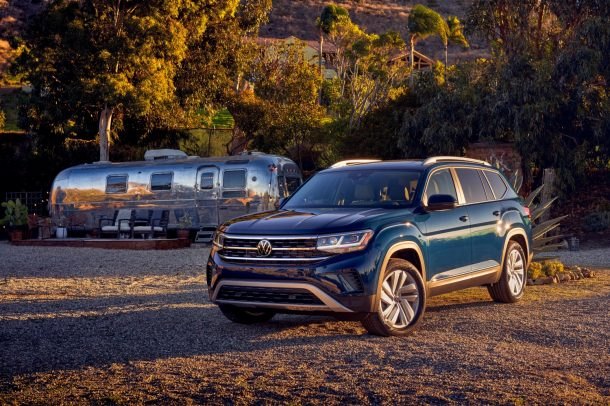
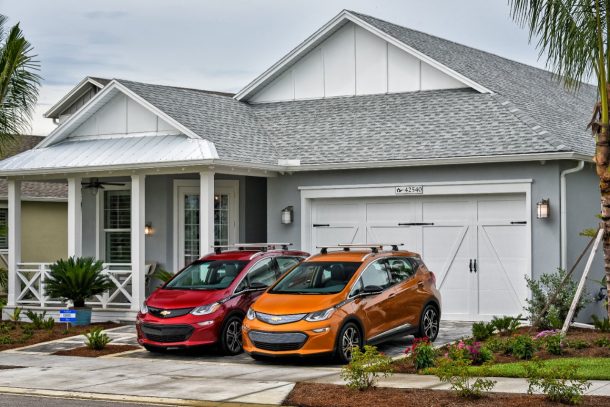


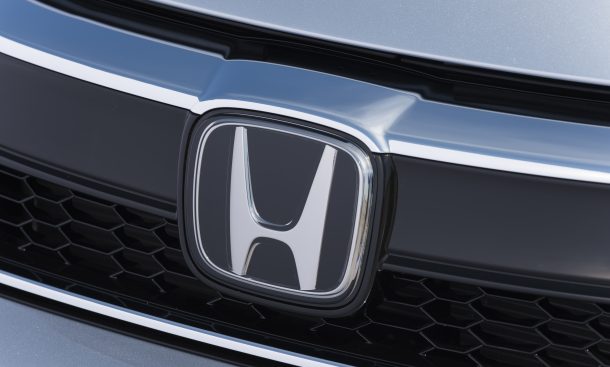
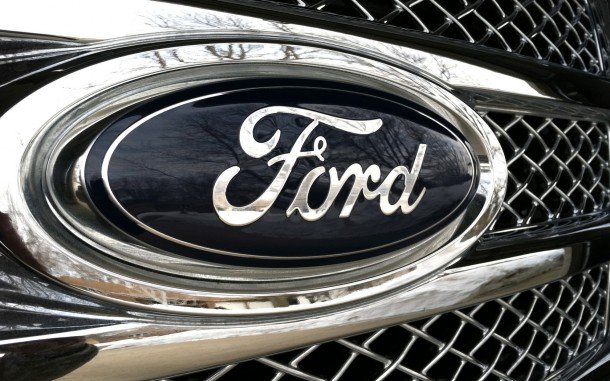
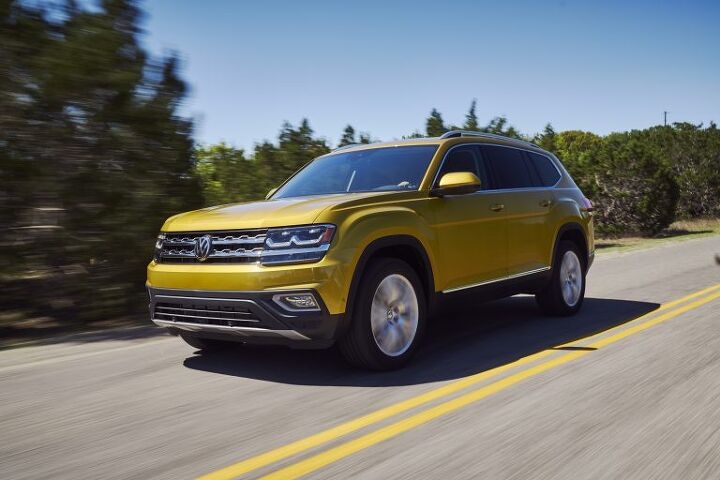
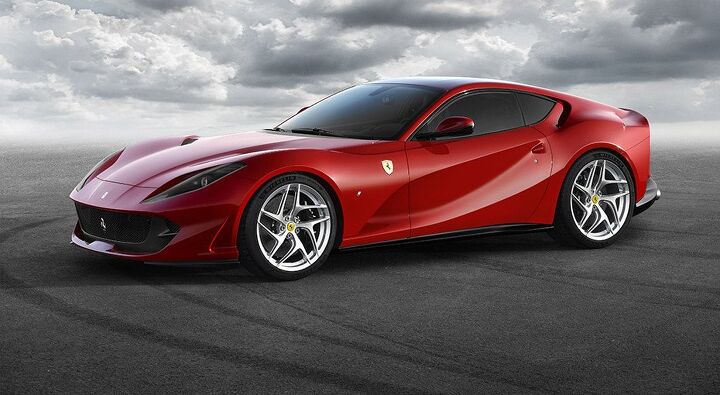
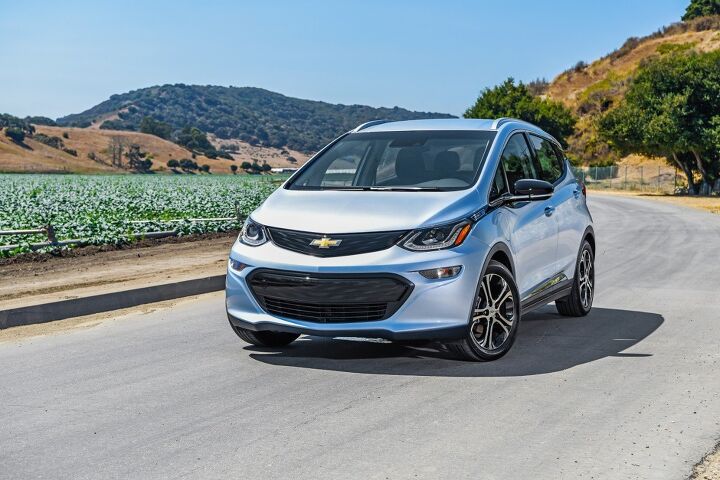
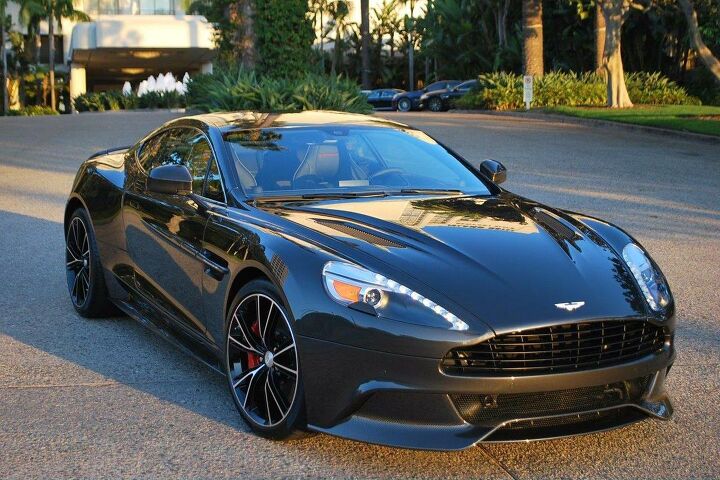













Recent Comments